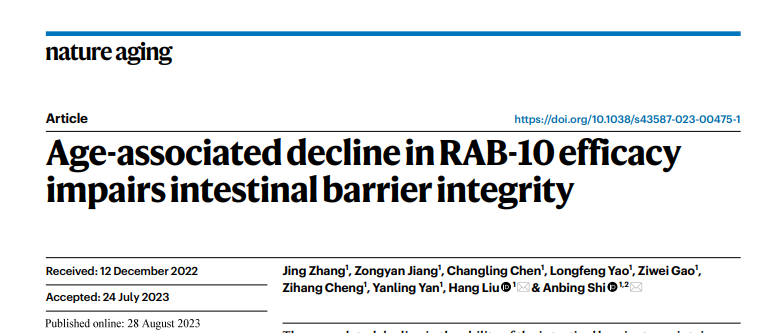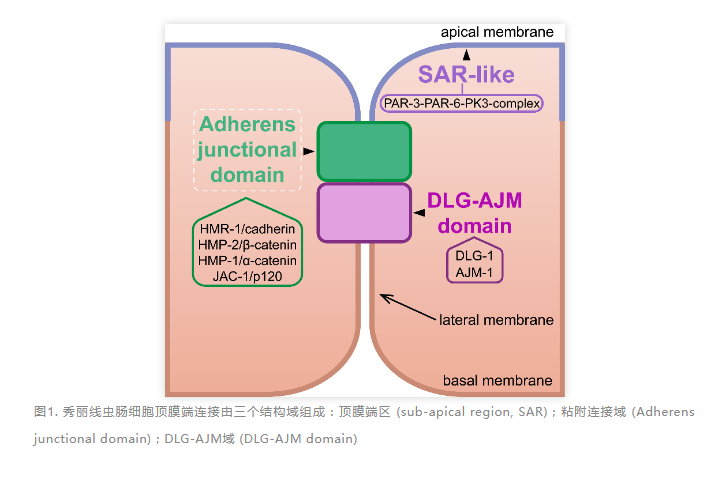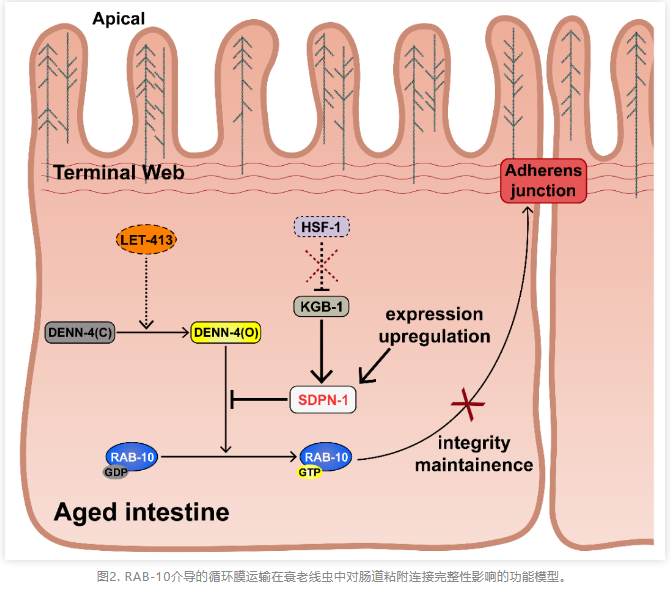On August 28, the research group of SHI Anbing from Tongji Medical College of HUST published a research paper entitled " Age-associated decline in RAB-10 efficacy impairs intestinal barrier integrity " (Age-associated decline in RAB-10 efficacy impairs intestinal barrier integrity) in Nature Aging, which explains how the transport efficiency of the inner membrane affects the integrity of the intestinal barrier in aging-related physiological changes.

The age-related decline in the ability of the intestinal barrier to maintain selective permeability can lead to various physiological disturbances. Adherens junctions play a vital role in regulating intestinal permeability, and their proper assembly is contingent upon endocytic recycling. However, how aging affects the recycling efficiency and, consequently, the integrity of adherens junctions remains unclear. Here we show that RAB-10/Rab10 functionality is reduced during senescence, leading to impaired adherens junctions in theCaenorhabditis elegansintestine. Mechanistic analysis reveals that SDPN-1/PACSINs is upregulated in aging animals, suppressing RAB-10 activation by competing with DENN-4/GEF. Consistently, SDPN-1 knockdown alleviates age-related abnormalities in adherens junction integrity and intestinal barrier permeability. Of note, the inhibitory effect of SDPN-1 on RAB-10 requires KGB-1/JUN kinase, which presumably enhances the potency of SDPN-1 by altering its oligomerization state. Together, by examining age-associated changes in endocytic recycling, our study sheds light on how aging can impact intestinal barrier permeability.


ZHANG Jing, a postdoctoral researcher at Huazhong University of Science and Technology, is the first author of this study. Dr. LIU Xing and Professor SHI Anbing are the communication authors of this study.
Paper link:https://www.nature.com/articles/s43587-023-00475-1
